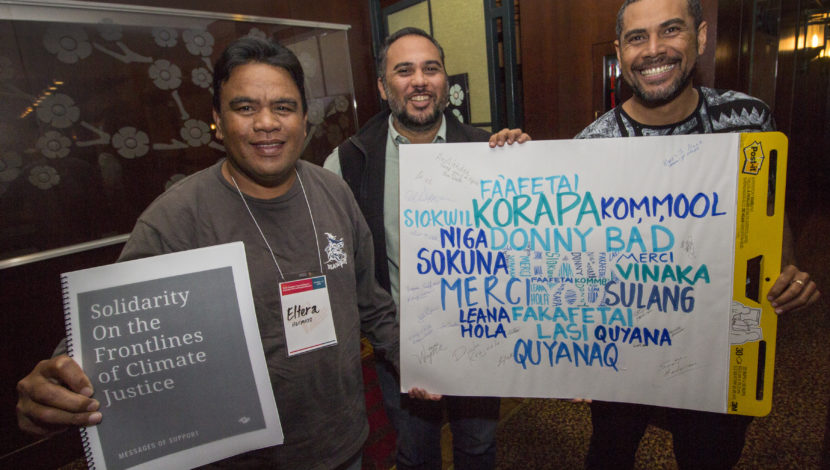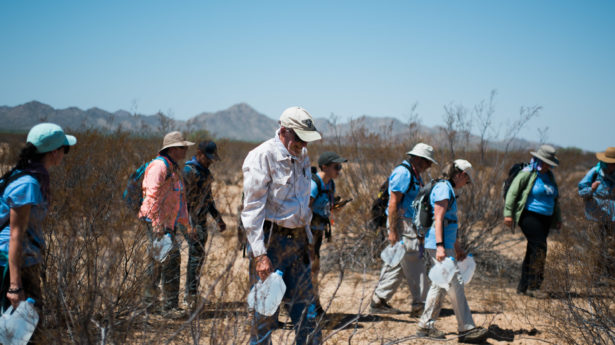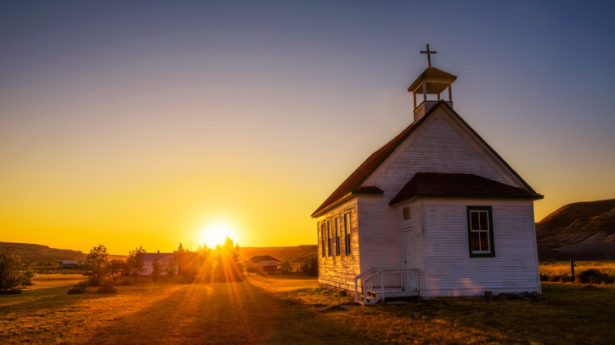The Unitarian Universalist Service Committee advances human rights through grassroots collaborations.
Looking Back at 2018: Advancing Human Rights Through Advocacy and Grassroots Engagement

By Shayna Lewis on January 1, 2019
Over the past year, UUSC has supported human rights across multiple issues and at domestic and international levels, in close partnership with our partners, ally organizations, and supporters across the globe.
Even in the face of opposition in the United States and beyond, we continue to make significant strides toward the realization of our human rights goals. While multiple challenges and opportunities lie ahead in 2019, we wanted to take a moment to celebrate a few examples of the critical work we accomplished together in 2018.
Following the lead of affected communities: The First Peoples’ Convening on Climate-Forced Displacement
“UUSC and many other human rights and climate justice groups unsparingly call on international parties to get out of stall mode on plans to deliver financial and other supports to developing nations.” – Salote Soqo, UUSC senior partnership officer for climate justice and crisis response
UUSC’s Climate Justice work focuses on advancing and protecting the rights of populations at risk of climate-forced displacement caused by slow-onset climate impacts. For our organization to have the most impact, listening to our partners is just as crucial as amplifying their messages.
In October, 60 representatives of impacted communities from Bangladesh, the Pacific Islands, and the United States—including Indigenous Peoples from Washington State, Louisiana, and Alaska—joined together for three days in Girdwood, Alaska to discuss the impacts of climate change they are experiencing.
The Convening provided a place for participants to share their individual stories, many of which included themes of pain, loss, and incredible resilience. The gathering, co-sponsored by UUSC and the Climate Justice Resilience Fund, resulted in an international declaration urging the United Nations and global leaders to commit to implementation of initiatives that protect, revive, and transfer to younger generations the rapidly eroding traditional knowledge and way of life of First Peoples and Indigenous Peoples. This commitment is imperative in building community resilience to the impacts of the climate crisis. This declaration will provide a lasting framework for UUSC’s advocacy strategy on climate justice moving forward, and was instrumental in forming the demands we raised at COP24 in Poland earlier this month.
Humanitarian aid is never a crime: Faith Floods the Desert
“It was incredible to trek the desert along with faith leaders and other humanitarian volunteers. We left messages in Spanish of love and support written on the gallons of water left behind. I hope that the water gets to the migrants and from that they know that a lot of people care.” – Brittney Rose, UUSC senior executive assistant
In January, UUSC partner No More Deaths released a report documenting U.S. Customs and Border Protection’s routine destruction of humanitarian aid supplies. Authorities responded swiftly, arresting a No More Deaths volunteer that same day and charging several other volunteers with federal criminal offenses for leaving water in the desert in the following weeks. In the face of this immoral retaliation, Love Resists, a joint campaign between the UUA and UUSC, and No More Deaths organized “Faith Floods the Desert” from August 3-6.
This action brought together 61 interfaith leaders and religious professionals from across the nation to “flood” the West Desert of Arizona during one of the hottest and most dangerous times of the year in the region to defend the legitimacy of life-saving humanitarian aid. Participants distributed 125 gallons of water in remote areas of the desert; called for the charges against volunteers to be dropped; and pressed the Cabeza Prieta Wildlife Refuge to agree to allow distribution of aid in the refuge.
Simultaneously, hundreds of individuals and groups signed on to demands that charges against No More Deaths volunteers be dropped—an ongoing action that you can participate in now by making a direct call to First Assistant U.S. Attorney for Arizona Elizabeth Strange.
Protecting the rights of the Rohingya in Burma
“International and domestic pressure to formally investigate and prosecute claims against the Burmese military for genocide against the Rohingya continues to grow and the U.S. government is overdue for action.” – Shayna Lewis and Mayuri Anupindi
In November 2017, two bills were introduced in the U.S. Congress to sanction those responsible for the atrocities, as well as provide humanitarian assistance. Thousands of UUSC supporters have called on their legislators to cosponsor this legislation. Disappointingly, despite significant bipartisan support, the Senate version was repeatedly held up due to Majority Leader Mitch McConnell’s opposition. However, as 2018 drew to a close, we saw incredibly encouraging developments that Congress may finally be ready and willing to step up.
In December, the Public International Law and Policy Group (PILPG) concluded, “there are reasonable grounds to believe that genocide was committed against the Rohingya Muslim minority in Myanmar’s [Burma’s] northern Rakhine State.” This determination is the culmination of years of research and echoes statements recently made by the U.S. Holocaust Memorial Museum, as well as UUSC partner Fortify Rights.
Using the term “genocide” to describe what is happening in Burma is a critical step to push the United States and the broader international community to act. As a result of the continued advocacy from human rights organizations and focus on this issue from key members of Congress, just last week the House overwhelmingly (394-1) approved a resolution to label the violence against the Rohingya “genocide.” Reuters recently reported that a bipartisan group of U.S. senators called on Secretary of State Mike Pompeo to do the same. Senators Cardin, Young, Durbin, Rubio, and Merkley have also re-introduced the Burma Human Rights and Freedom Act—legislation that UUSC will continue to advance in the 116th Congress.
Over the next year, UUSC’s advocacy team will encourage our supporters to join us in taking direct action on issues including migrant justice, climate-forced displacement, and our crisis response work, calling on our elected officials and other government leaders to protect and advance human rights. We hope you will continue to add your voice to these critical calls, showing up and speaking out against unjust power structures and oppressive policies.

